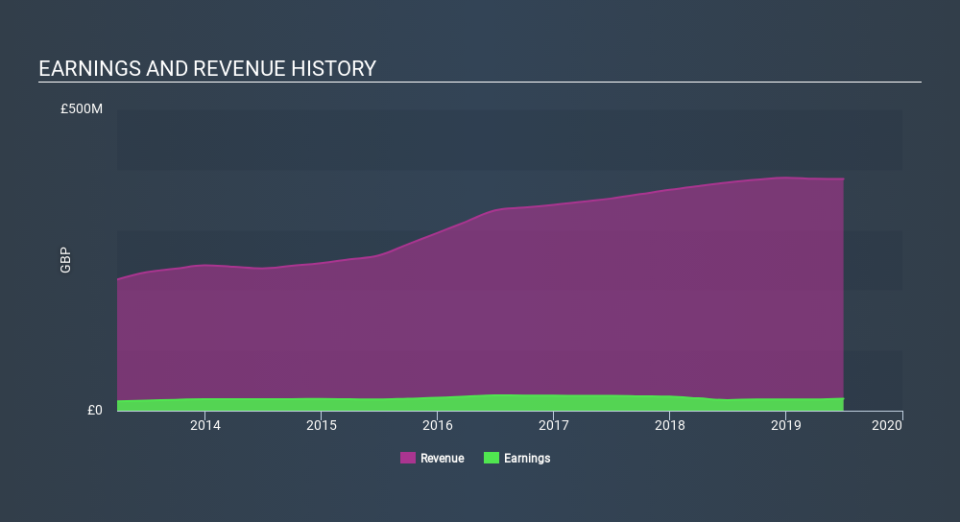Does Ricardo plc's (LON:RCDO) 13% Earnings Growth Reflect The Long-Term Trend?

When Ricardo plc (LSE:RCDO) announced its most recent earnings (30 June 2019), I compared it against two factor: its historical earnings track record, and the performance of its industry peers on average. Being able to interpret how well Ricardo has done so far requires weighing its performance against a benchmark, rather than looking at a standalone number at a point in time. In this article, I've summarized the key takeaways on how I see RCDO has performed.
Check out our latest analysis for Ricardo
How Did RCDO's Recent Performance Stack Up Against Its Past?
RCDO's trailing twelve-month earnings (from 30 June 2019) of UK£20m has jumped 13% compared to the previous year.
Furthermore, this one-year growth rate has exceeded its 5-year annual growth average of -0.05%, indicating the rate at which RCDO is growing has accelerated. How has it been able to do this? Let's see whether it is only a result of industry tailwinds, or if Ricardo has seen some company-specific growth.
In terms of returns from investment, Ricardo has fallen short of achieving a 20% return on equity (ROE), recording 12% instead. Furthermore, its return on assets (ROA) of 6.0% is below the GB Professional Services industry of 7.8%, indicating Ricardo's are utilized less efficiently. And finally, its return on capital (ROC), which also accounts for Ricardo’s debt level, has declined over the past 3 years from 16% to 13%. This correlates with an increase in debt holding, with debt-to-equity ratio rising from 0.09% to 48% over the past 5 years.
What does this mean?
While past data is useful, it doesn’t tell the whole story. Recent positive growth isn't always indicative of a continued optimistic outlook. There may be variables that are impacting the industry as a whole, hence the high industry growth rate over the same time frame. I recommend you continue to research Ricardo to get a better picture of the stock by looking at:
Future Outlook: What are well-informed industry analysts predicting for RCDO’s future growth? Take a look at our free research report of analyst consensus for RCDO’s outlook.
Financial Health: Are RCDO’s operations financially sustainable? Balance sheets can be hard to analyze, which is why we’ve done it for you. Check out our financial health checks here.
Other High-Performing Stocks: Are there other stocks that provide better prospects with proven track records? Explore our free list of these great stocks here.
NB: Figures in this article are calculated using data from the trailing twelve months from 30 June 2019. This may not be consistent with full year annual report figures.
If you spot an error that warrants correction, please contact the editor at editorial-team@simplywallst.com. This article by Simply Wall St is general in nature. It does not constitute a recommendation to buy or sell any stock, and does not take account of your objectives, or your financial situation. Simply Wall St has no position in the stocks mentioned.
We aim to bring you long-term focused research analysis driven by fundamental data. Note that our analysis may not factor in the latest price-sensitive company announcements or qualitative material. Thank you for reading.

 Yahoo Finance
Yahoo Finance 
